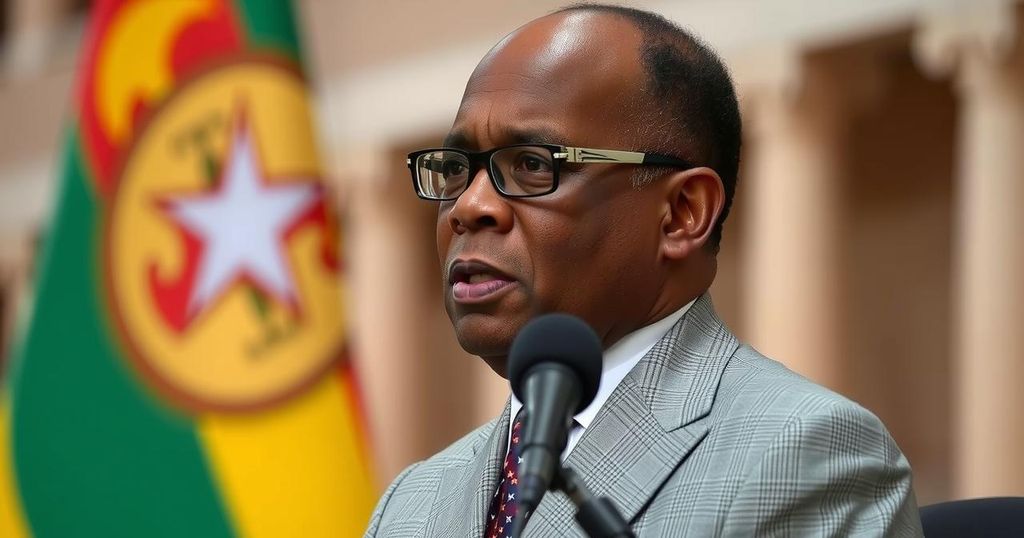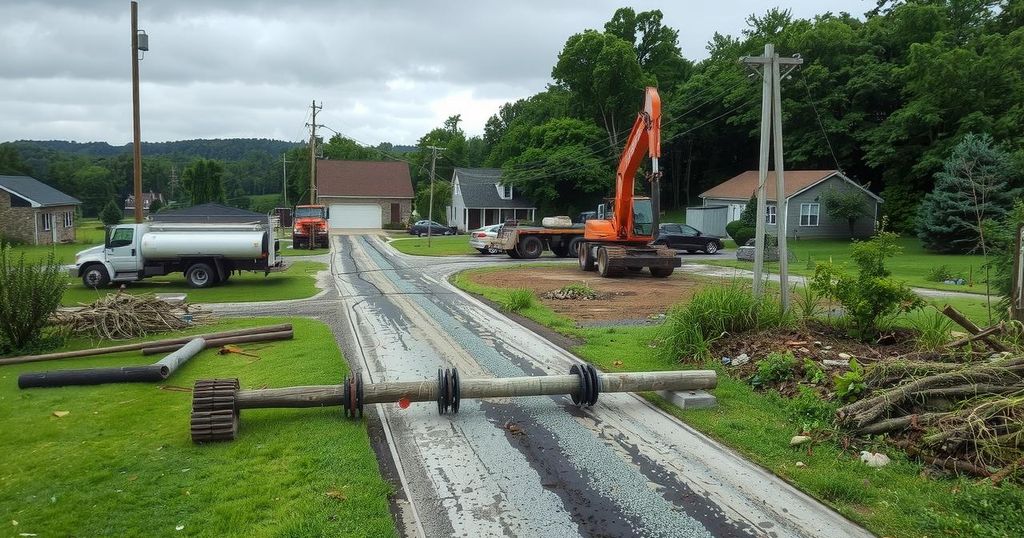Mozambique’s Supreme Court Confirms Election Results Amid Ongoing Protests
Mozambique’s top court confirmed the ruling Frelimo party’s victory in the October elections, leading to renewed protests amid allegations of vote rigging. Daniel Chapo received 65.2% of the vote, while opposition leader Venâncio Mondlane secured 24.2%. The protests have resulted in over 130 deaths and significant unrest, as challenges to the election results continue despite court validation. With Cyclone Chido’s impact adding to the country’s woes, the political climate remains volatile as Chapo prepares for his presidency.
Mozambique’s highest court has affirmed the ruling party’s claim to victory in the October presidential elections, triggering potential for further protests following months of civil unrest surrounding allegations of electoral fraud. Daniel Chapo, representing the ruling Frelimo party, has been confirmed as the winner with 65.2% of the votes according to Lúcia Ribeiro, the chair of Mozambique’s constitutional council, as announced in a press conference.
This result reflects a revision down from the election commission’s earlier figure of 70.7%, although it still exceeds the 50% threshold needed to secure the presidency. The opposition candidate, Venâncio Mondlane, garnered 24.2% of the votes, an increase from 20.3%, yet it remains insufficient to contest the ruling party’s majority. The constitutional council’s report acknowledged “discrepancies” during vote counting at the district level but did not clarify the nature of these discrepancies. In addition, it indicated that Mondlane’s party, Podemos, had submitted “inflated” claims during their challenge to the results.
Prolonged protests in Mozambique have led to significant unrest, with reports indicating that security forces have been implicated in the deaths of at least 130 individuals, as noted by Human Rights Watch. International observers have expressed concerns regarding potential electoral malpractice, although some have cautioned that Mondlane’s challenge may not represent a fully free and fair electoral process. Amid these events, the economy has been severely disrupted and is additionally grappling with the impacts of Cyclone Chido, which devastated the northern region of the country.
In light of the ruling, Mondlane instructed his supporters to refrain from violent actions while continuing to contest the election results through protests dubbed “Turbo V8.” He expressed that the nation would experience peace only if electoral integrity is established, stating, “If we get the electoral truth [from Ribeiro], we will have peace. If we get electoral lies, we will push the country over a precipice into chaos, into disorder.”
Following the court ruling, scenes of unrest included burning tires, although streets remained largely deserted except for a notable presence of armed security forces. Chapo, who is set to assume office on January 15, assured Frelimo supporters of his commitment to electoral reforms, remarking, “Dialogue is the only way to build social harmony.”
Experts suggest that this situation marks a pivotal change in Mozambique’s political landscape, where historically a weak state and a dominant ruling party are being confronted by a growing youth movement, energized by frustrations over disenfranchisement. According to Alex Vines, head of the African program at Chatham House, the emergence of a charismatic leader like Mondlane is indicative of shifting dynamics within Mozambique’s political fabric.
The political climate in Mozambique has been tense since the October presidential elections, marked by claims of electoral fraud and a series of violent protests. The ruling Frelimo party has maintained power since the country’s independence in 1975, yet recent events suggest dissatisfaction among younger voters, particularly in urban areas. The emergence of Venâncio Mondlane as a significant opposition figure has galvanized sociopolitical discontent, challenging the long-established dominance of Frelimo and raising questions about the integrity of electoral processes in Mozambique. The constitutional council’s ruling and the subsequent unrest highlight the fragile state of Mozambique’s democracy, amid rising tensions that have resulted in numerous fatalities and economic destabilization. This situation is further compounded by natural disasters, such as Cyclone Chido, which have affected the population’s well-being and added complexity to the already precarious sociopolitical environment.
The confirmation of Frelimo’s electoral victory by Mozambique’s top court has the potential to exacerbate ongoing civil unrest, significantly influenced by allegations of electoral malpractice. With opposition leader Venâncio Mondlane appealing to the frustrations of young voters, the balance of power in Mozambique may be shifting, reflecting a growing demand for reform and transparency. The implications of the court’s ruling and its reception by various factions within the nation will likely shape the future of Mozambique’s political landscape, marking a crucial juncture in its democratic evolution.
Original Source: www.theguardian.com




Post Comment